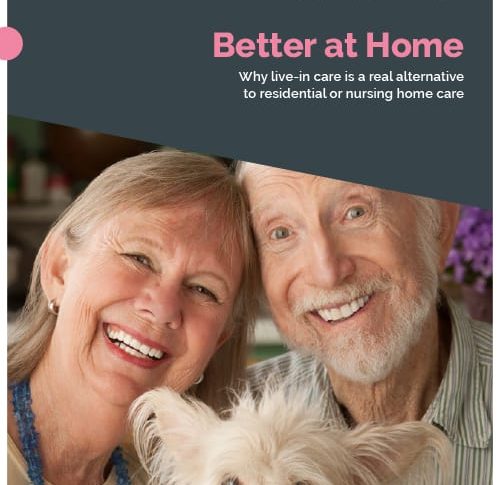New Report Reveals Better Approach for Elderly Care
 An increasing body of evidence indicates that the best place for quality of life for elderly people is in their own homes. Care homes and nursing homes in the UK use an institutionalised and inflexible model of care which, despite the best efforts of carers, cannot provide a safe, dignified and happy life for residents. The pandemic over the past year has laid bare the failings in the current approach to care of our elderly population.
An increasing body of evidence indicates that the best place for quality of life for elderly people is in their own homes. Care homes and nursing homes in the UK use an institutionalised and inflexible model of care which, despite the best efforts of carers, cannot provide a safe, dignified and happy life for residents. The pandemic over the past year has laid bare the failings in the current approach to care of our elderly population.
The new report, commissioned by the not-for-profit organisation The Live in Care Hub, uses published data and proprietary research by the world-renowned Personal Social Services Research Unit (PSSRU), a collaboration between the University of Kent and the London School of Economics. The analysis clearly indicates that older people are safer and healthier being cared for in their own homes by professional carers.
Successive UK Governments have identified ‘personalised care’ and a ‘home-first’ approach to care as a priority. The Live-in Care Hub are calling on the Government to stop merely paying lip-service to person-centred care and to ensure local councils and social workers give serious consideration to care at home when people need care services.
For the health and safety of our elderly population, it is critical that the lessons learned about care homes during the Coronavirus pandemic are used to build a better model of care. A model that also considers the dignity and happiness of older people. As a caring society we need to give people the option to receive the care they need at home rather than making them believe their only option is institutionalised care.
The live-in care model is already a proven model of safe, effective care in the UK, and this new research shows how live-in care offers a better alternative to residential care and should be a major part of the future of social care in the UK.
The economics of live-in care are very simple. The majority of the cost goes to the wages of the carer. Whereas the majority of care home fees go towards providing accommodation and food, and much less towards hands-on care. Even the most expensive care or nursing homes place limits on the time staff spend with residents meaning the amount of actual one-to-one care is typically only 3 hours a day, much of which is ‘transactional’ rather than quality time.
source: https://www.newsanyway.com/2021/06/01/new-report-reveals-better-approach-for-elderly-care/









